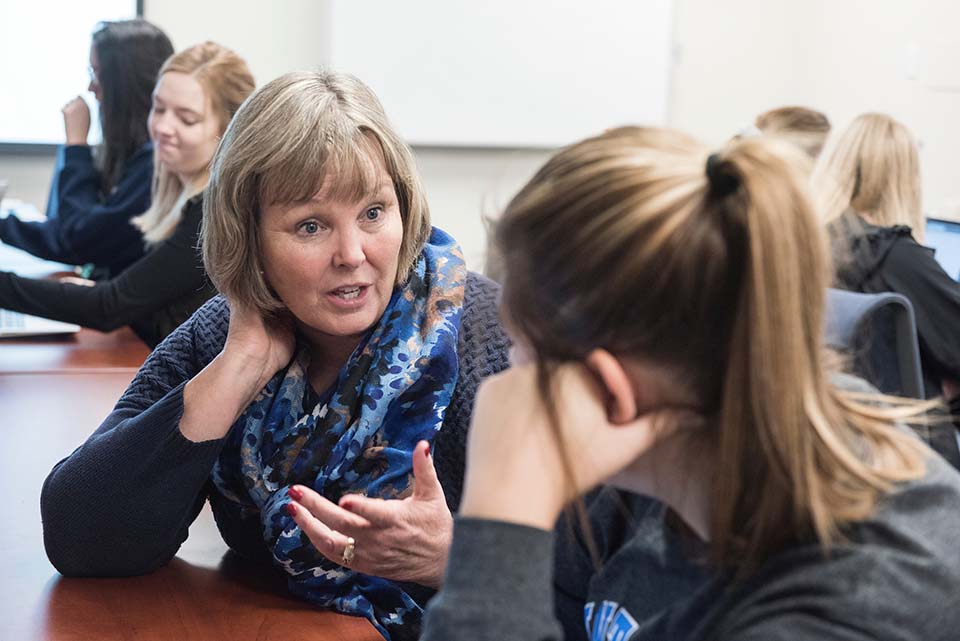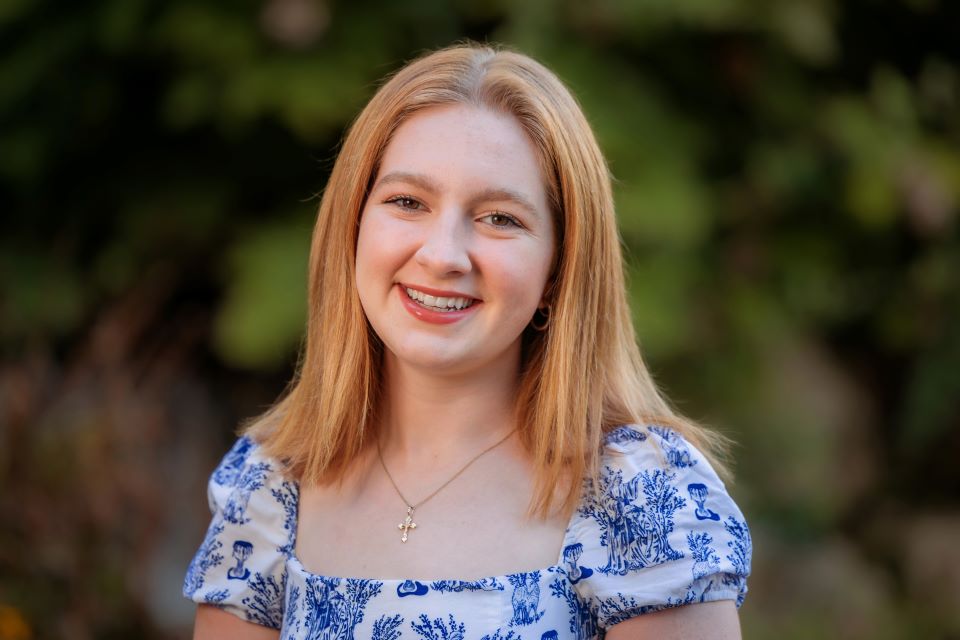Saint Louis University, Taylor Geospatial Institute Ramp Up Hiring of Geospatial Faculty
ST. LOUIS — Saint Louis University will hire 20 new faculty members in core geospatial science and related fields in an ambitious cluster hiring initiative. The new positions, which will be filled over a three-year span, will be hired in collaboration with the Taylor Geospatial Institute.
The hiring effort will bring new faculty to SLU who apply geospatial tools, technologies, and research methodologies to specialties across a diverse range of fields from climate science and agriculture to healthcare and national security.
The initiative will advance TGI’s vision to become the nation’s leader in geospatial research, fueling innovation and creating the next generation of talent in the burgeoning field of geospatial science and technology.
“Saint Louis University and the Taylor Geospatial Institute are committed to making the St. Louis region the nation’s academic leader in geospatial science research,” said SLU Provost Michael Lewis, Ph.D.
The first round of hires will fill roles in core geospatial science and related disciplines in SLU’s departments of Family and Community Medicine; Aviation Science; Aerospace and Mechanical Engineering; Civil, Computer and Electrical Engineering; Computer Science; Earth and Atmospheric Science; Sociology and Anthropology; and Public Health.
The new faculty will be part of TGI, the powerhouse geospatial consortium formed in 2022. Housed at SLU, the consortium also includes the Donald Danforth Plant Science Center, Harris-Stowe State University, University of Illinois Urbana-Champaign, Missouri University of Science & Technology, University of Missouri-Columbia, University of Missouri-St. Louis, and Washington University in St. Louis.
“The connection to TGI gives SLU faculty instant access to resources, equipment, collaborators and project support from TGI’s unrivaled consortium,” said Nadine Alameh, Ph.D., executive director of Taylor Geospatial Institute. “It’s exciting to see this timely, collaborative effort to concentrate expertise that TGI can leverage to spark a revolution in geospatial science and technology capable of propelling humanity forward.”
TGI aims to accelerate the pace of innovation in geospatial science through multi-institutional, interdisciplinary collaborations to create real-world solutions to major societal challenges. The new SLU faculty hires will have the unique opportunity to distinguish themselves and their research on a global scale as they aid in TGI’s mission to cultivate geospatial excellence, on the university and regional level, to support a collaborative research and training environment with a focus on:
- Core geospatial science and computation – leveraging an interdisciplinary network of knowledge, technology, and skills to make geospatial science more powerful and versatile.
- Food security – informing climate-smart farming practices while simultaneously increasing biodiversity and agricultural output.
- Geospatial health – measuring location and its influence on community health to improve healthcare systems and outcomes worldwide.
- National security – maintaining a leading edge over adversaries through innovation in policy and technology and cultivating a highly skilled geospatial workforce.
SLU and TGI are committed to attracting the best and brightest scientists and students to the St. Louis area to join the geospatial ecosystem. The GeoFutures strategic roadmap reports that, as of 2020, there were more than 6,600 geospatial jobs across 350 companies in St. Louis.
Combined with the nearly $20 million in university R&D grants in geospatial-related research, this generates a total economic impact reaching 27,000 jobs and nearly $5 billion in economic activity for the St. Louis region.
“Adding faculty with diverse expertise will further SLU’s and TGI’s role in the region’s thriving geospatial ecosystem,” said Ken Olliff, SLU’s vice president for research and partnerships and chair of TGI’s governing council. “A vibrant network of start-ups, corporations, and non-profits around the city are committed to making St. Louis the center of the larger geospatial solar system. Saint Louis University and TGI are proud to contribute to tackling humanity’s toughest challenges using cutting-edge geospatial science.”
About Saint Louis University
Founded in 1818, Saint Louis University is one of the nation’s oldest and most prestigious Catholic institutions. Rooted in Jesuit values and its pioneering history as the first university west of the Mississippi River, SLU offers more than 15,200 students a rigorous, transformative education of the whole person. At the core of the University’s diverse community of scholars is SLU’s service-focused mission, which challenges and prepares students to make the world a better, more just place. For more information, visit slu.edu.
About Taylor Geospatial Institute
TGI is passionate about fueling geospatial science and technology to create the next generation of solutions and policies that the whole world will depend on for sustainability and growth.
The TGI consortium is led by Saint Louis University and includes the Donald Danforth Plant Science Center, Harris-Stowe State University, University of Illinois Urbana-Champaign, Missouri University of Science & Technology, University of Missouri-Columbia, University of Missouri-St. Louis, and Washington University in St. Louis. Collectively, these institutions encompass more than 5,000 faculty and 100,000 students.
For more information, visit taylorgeospatial.org.
Latest Newslink
- Kathryn Mitchell Pierce, Ph.D.: 1955-2025Kathryn Mitchell Pierce, Ph.D., associate professor of educational studies, died Wednesday, Dec. 10, 2025. She was 70 years old. Pierce joined Saint Louis University in 2015 as an assistant professor in the School of Education. Initially a literacy specialist in the undergraduate program, she eventually taught and mentored across all levels at the School of Education. She became an associate professor in 2022.
- Saint Louis University Student Speaks About Leadership and Disability at Ignatian Family Teach-In for JusticeSaint Louis University senior Grace LoPiccolo shared her personal leadership journey at the 2025 Ignatian Family Teach-In for Justice. The event, held annually in Washington, D.C., is the nation’s largest Catholic social justice advocacy day.
- SLU Research Shows Surge in Alcohol-Related Liver Disease Driving ‘Deaths of Despair’Researchers at Saint Louis University School of Medicine say deaths from alcohol-related liver disease have surged in recent years, and the increase is hitting people without a college degree the hardest. While nearly every demographic group is seeing higher death rates—including those with college degrees—the gap between economically disadvantaged groups and more affluent ones is growing, according to new research.
- Saint Louis University Joins Multi-Disciplinary Research Team to Enhance Stress Resilience in SorghumSaint Louis University is part of a multi-disciplinary team, led by the Donald Danforth Plant Science Center, to deepen the understanding of sorghum, a versatile bioenergy crop, and its response to environmental challenges.The U.S. Department of Energy (DOE) Biological and Environmental Research (BER) program supports the three-year $2.5 million project for Genomics-Enabled Understanding and Advancing Knowledge on Plant Gene Function. Saint Louis University will receive $437,039 for its portion of the study.
- SLU Graduates Celebrated at Midyear CommencementSaint Louis University celebrated its Midyear Commencement on Saturday, Dec. 13, inside Chaifetz Arena. More than 1,900 guests watched as 600-plus SLU students walked across the stage and left as graduates.
- Why Do Raccoons Cross the Road? SLU, St. Louis Zoo Research Shows They Don'tA new study led by researchers from Saint Louis University, the Saint Louis Zoo, and partner organizations set out to understand how raccoons use space in one of the nation's largest urban parks.













